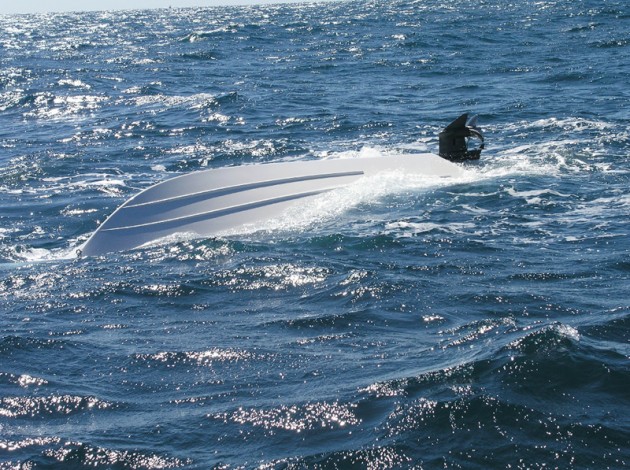Improper anchoring caused boat to capsize

A report released by the Florida Fish and Wildlife Conservation Commission (FWC) investigating a boating incident involving two former USF football players and two NFL football players concluded that improper anchoring caused the boat to capsize in the Gulf of Mexico last month.
Using information gathered in a March 3 interview of the only retrieved occupant of the capsized boat — Nick Schuyler, a former USF football player — FWC investigator James Manson concluded that the anchor was not correctly deployed. In addition, the report states, not enough slack was left — a mistake that caused the men to sit chest-deep in water when the boat capsized.
Schuyler and former USF player Will Bleakley, along with NFL players Corey Smith and Marquis Cooper, who owned the boat, left Clearwater at about 6:30 a.m. Feb. 28 on a 21-foot Everglades boat containing two large coolers with ice, drinks, food, beer and 25 gallons of extra fuel.
When the men attempted to pull the anchor from the water at approximately 5:30 p.m. the same day, they could not free it from the bottom of the Gulf. The report states that Cooper had said he lost his anchor the weekend before.
Schuyler told investigators that Bleakley suggested they move the anchor — which was tied to a bow cleat — to the stern of the boat near the motor.
The men remained at the helm and tried to pull the anchor from the water using the motor.
“The (boat) immediately swamped over the stern (transom), submerging and rolling to port, capsizing,” states the report.
The men were thrown overboard and could not right the boat. According to the report all the men were under the influence of alcohol at this time except Smith.
Bleakley retrieved three life vests, a throwable flotation device and a cooler from under the capsized boat. Schuyler, Cooper and Smith used the life vests, while Bleakley used the throwable device.
Schuyler told investigators that they attempted to retrieve and use cell phones, which were in plastic bags, and flares but neither was successful.
“The water level was approximately up to the four occupants’ chests while seated on the capsized hull,” the report states.
Schuyler recorded time with his watch.
The report states that one can survive hypothermia for about 19 hours.
Twelve hours after the boat capsized, at 5:30 a.m. March 1, Schuyler told investigators, Cooper became non-responsive, showing possible symptoms of hypothermia, and Schuyler and Bleakley were unsuccessful in attempts to revive him.
Cooper’s life jacket was removed and he was separated from the boat. Bleakley, who had been using a throwable flotation device, put on Cooper’s life jacket.
An hour later, about 6:30 a.m., the report states, “Smith began to show possible extreme symptoms of hypothermia. Schuyler said that Smith removed his flotation device and separated from (the boat).”
March 2 at 6:15 a.m., Bleakley showed the same symptoms and also removed his life vest.
“Schuyler said while holding onto Bleakley, he appeared to have passed. Schuyler released Bleakley and Bleakley became separated from (the boat),” the report states.
The U.S. Coast Guard rescued Schuyler at 11:49 a.m. that day, about 35 miles west of St. Petersburg. The Coast Guard continued searching for the three other missing men until March 3 at 6:30 p.m., when the search was terminated.






